How to Choose the Best Eggs at the Grocery Store
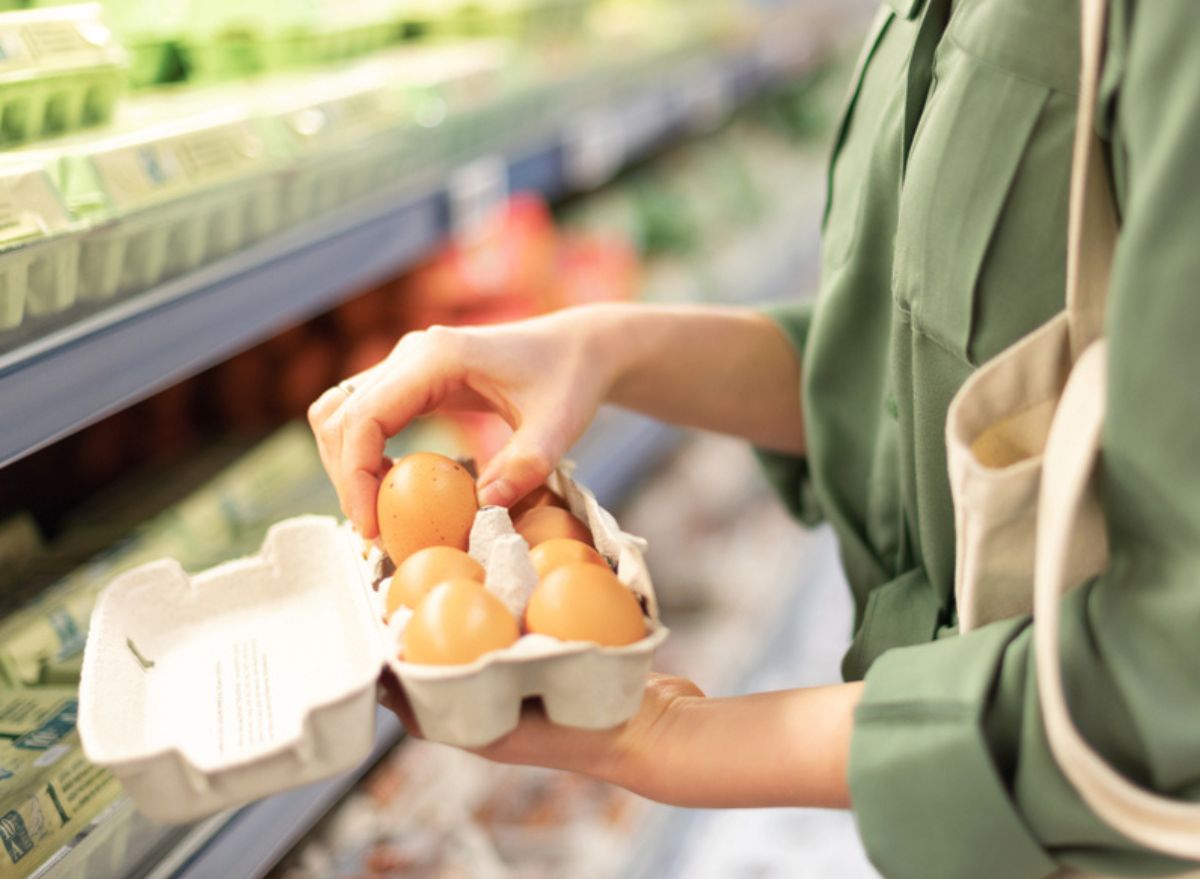
Despite recent fluctuations in prices, eggs are a grocery store staple for most American households. Whether you fix yourself a morning scramble every day, or you love frying an egg for your ramen at lunch, or you’re dreaming up a fluffy soufflé for dessert, eggs are essential for countless recipes. They’re also delicious and a nutritional powerhouse.
But when you find yourself in front of rows of colorful egg cartons at the grocery store, things can quickly become confusing. Amid all the label buzzwords, egg sizes, and price differences, it’s hard to tell which eggs to buy.
Here are a few things to keep in mind next time you’re picking up a dozen.
Check the size
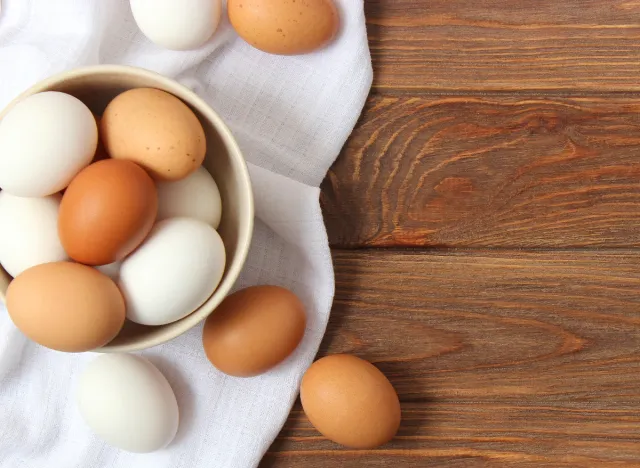
All eggs sold nationwide are required by the U.S. Department of Agriculture (USDA) to be labeled by size. The sizes are jumbo, extra large, large, medium, and small. You might also find “pee wee” eggs in some places.
The volume of an egg can vary widely between a jumbo and a small, so if you’re doing any precise cooking or baking, you’ll want to make sure to buy the right size. Most recipes, unless noted otherwise, are designed to use large eggs.
Know the grades

The USDA has a grading system for eggs, indicated by a letter inside a shield on the egg carton. The grades in the U.S. are as follows:
- Grade AA: This is the highest grade and is meant to indicate the freshest, highest-quality eggs.
- Grade A: This grade is for “very high-quality eggs.”
- Grade B: You’re unlikely to find Grade B eggs sold on their own, as most of these “lesser quality” eggs are used to make liquid egg products (the kind you buy in a pourable carton), or they’re used for baked goods.
Eggs are given grades based on interior and exterior assessments. AA eggs have clean, smooth, uniform shells. To assess the egg’s interior, graders use a method called candling to check the amount of air in the egg, as well as the thickness of the white and the size and shape of the yolk.
Be wary of labels
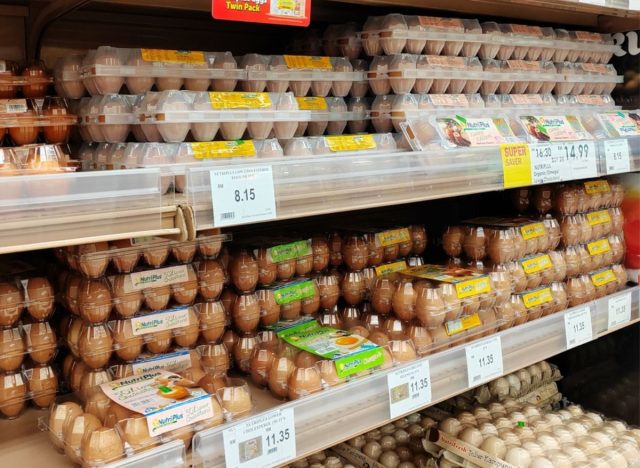
Unfortunately, much of the confusion about buying eggs comes from the long list of similar-sounding labels that companies slap on their cartons. Many of these buzzwords are unregulated marketing terms that give very little information about what you’re buying, despite sounding great.
Here are a few labels to consider:
“Cage-free eggs” come from chickens that don’t live in cages. However, the term offers no information about the birds’ living standards otherwise. After all, chickens that live their entire lives indoors in a cramped pen are not technically in a cage.
“Grass-fed chickens” eat grass, rather than grain or man-made feed. But again, there’s no telling where or how the chickens were raised. The term also doesn’t rule out the use of antibiotics and added hormones.
“Pasture-raised chickens” were given some time outside of a pen during their life, but unfortunately, there are no government rules as to how long the chicken has to be let out to warrant this label.
“Organic eggs“ come from chickens that were fed organic feed and have not been treated with added hormones or antibiotics. This is a good sign as to the quality of your eggs, but it’s worth remembering that organic chickens can still be housed in an inhumane way.
Go with a farmer or brand you trust
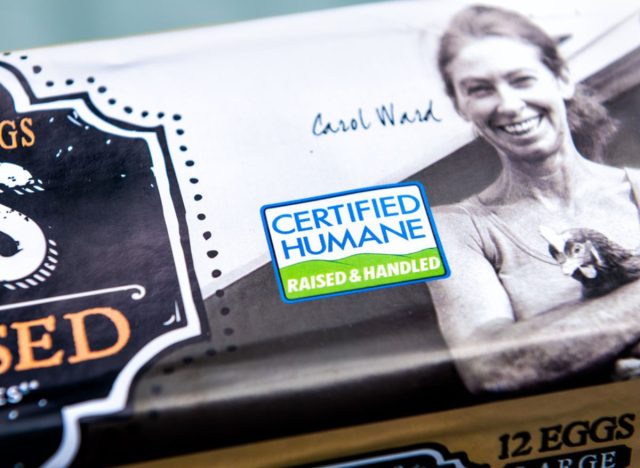
Because there are so many opportunities for misleading information on egg cartoons, your best bet is to find an egg producer that you trust and stick with it. Farmer’s markets often sell local eggs, and in many cases, you can talk directly with the farmers who raised the chickens and collected the eggs. This is a great way to ensure the quality and sustainability of your eggs.
In the grocery store, look for Vital Farms, which is a nationally available brand that partners with small farms committed to raising chickens with access to plenty of pasture and a natural diet.
Check under the lid
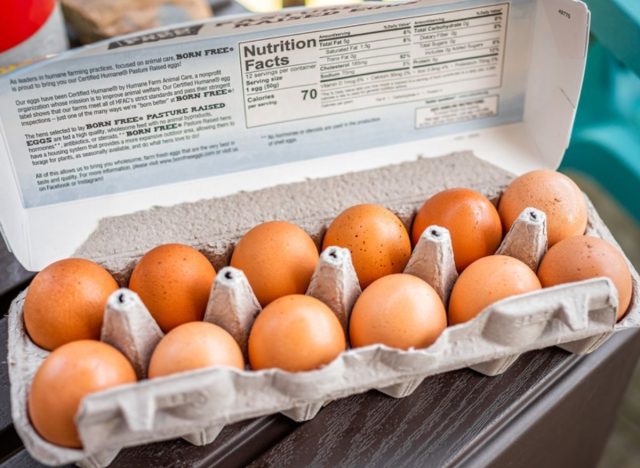
Once you’ve found a container that has the size and grade of eggs you’re looking for, it’s always a good idea to pop the carton open and take a peek. In most cases, eggs have traveled some distance to get to your grocery store, and they’re delicate, so damage is possible.
Check each shell for cracks or other signs of damage. You’ll also want to make sure the eggs are clean—no chicken poo or feathers hanging around, which can carry disease.









